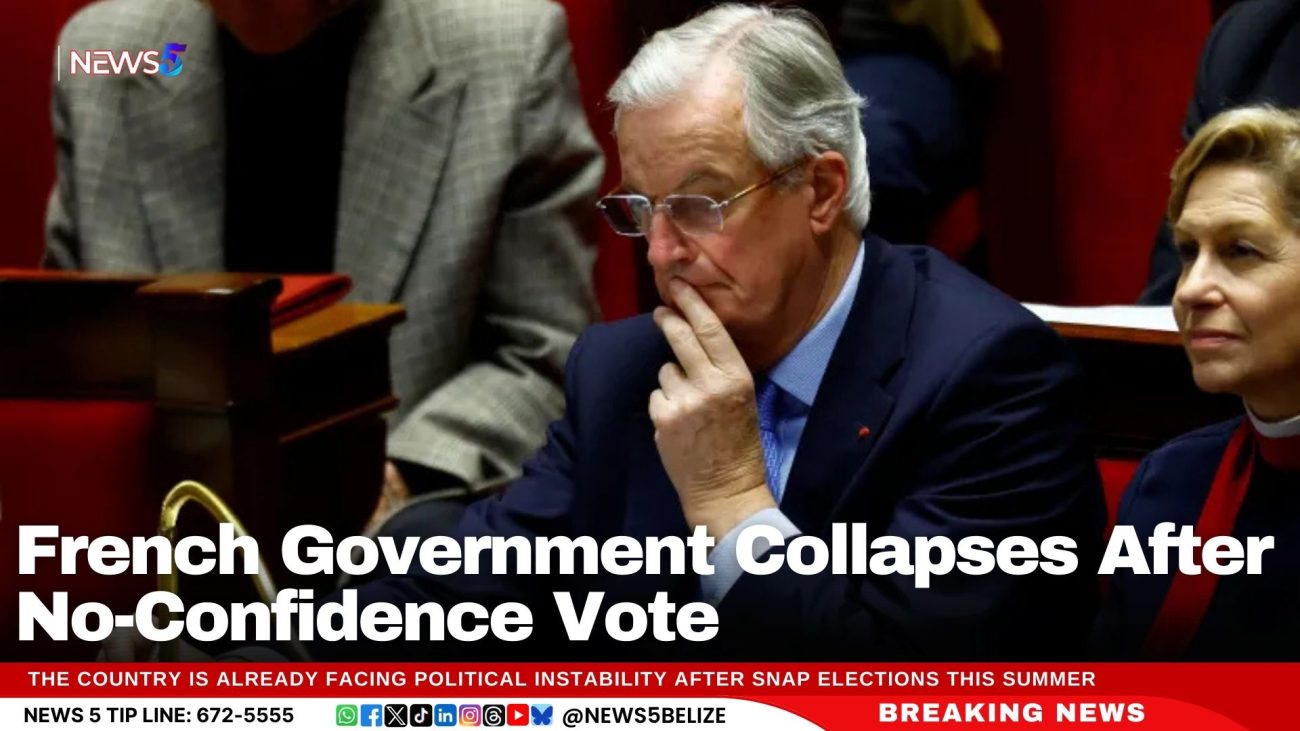French Government Collapses After No-Confidence Vote
The French government has collapsed following a no-confidence vote that ousted Prime Minister Michel Barnier. The motion, which passed with overwhelming support just three months after Barnier’s appointment by President Emmanuel Macron, was prompted by opposition parties after the former Brexit negotiator used special powers to push through his budget without a parliamentary vote.
This marks the first time since 1962 that France’s government has fallen due to a no-confidence motion. The country is already facing political instability after snap elections this summer resulted in no single party holding a majority in parliament.
In the vote, MPs were required to either vote yes or abstain, with 288 votes needed for the motion to pass. A total of 331 voted in favour of the motion. Barnier is now required to submit his resignation, and the budget that triggered the crisis is effectively nullified. He is expected to remain as caretaker prime minister while Macron selects a successor.
The no-confidence motion was filed by both left-wing and far-right parties after Barnier invoked presidential decree on Monday to push through controversial social security reforms after failing to garner sufficient parliamentary support. The left-wing New Popular Front (NFP) and far-right National Rally (RN) criticised the €60bn deficit-reduction budget as unacceptable, with RN leader Marine Le Pen calling it “toxic for the French.”
Ahead of the vote, Barnier defended his policies, stating that removing him from office would not solve France’s financial issues and that difficult measures were necessary to address the country’s debt. Le Pen, however, argued that Barnier’s removal was the only solution, though she stopped short of calling for Macron’s resignation, suggesting that pressure on the president would increase if political forces and election outcomes were ignored.
Macron, who returned to France from a state visit to Saudi Arabia, is expected to address the nation on Thursday. He is not directly impacted by the vote, as presidential and parliamentary elections are separate, but he had previously stated he would not resign regardless of the outcome. The deadlock in the Assembly is likely to persist until July, as no new parliamentary elections can be held before then.







Facebook Comments